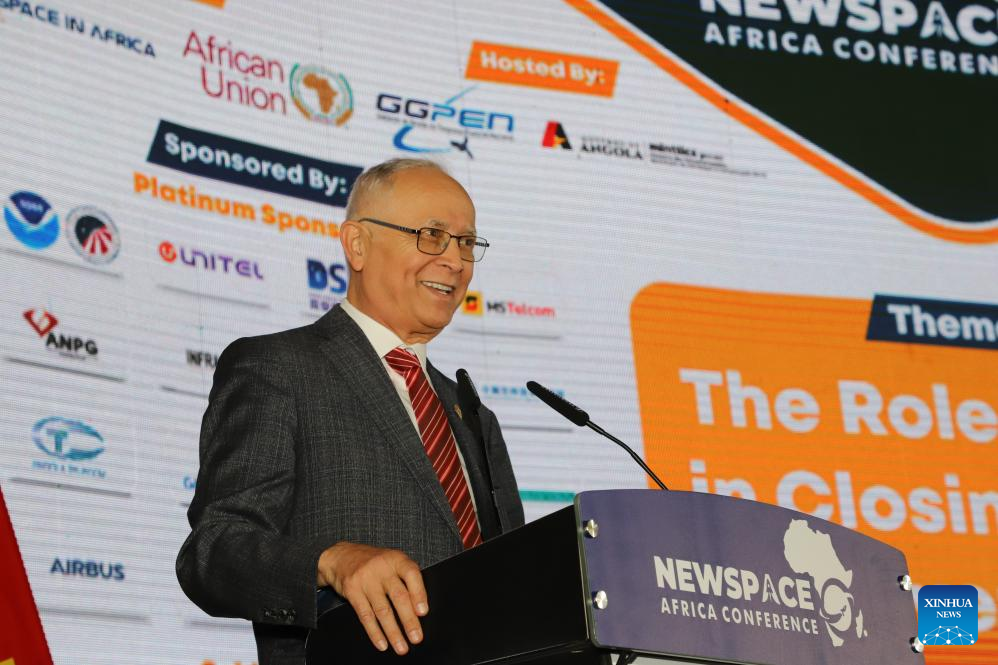
African Union (AU) Commissioner for Education, Science, Technology and Innovation Mohammed Belhocine speaks at the opening ceremony of the NewSpace Africa Conference 2024 in Luanda, Angola, on April 2, 2024. Africa will soon be blessed with the establishment of the African Space Agency (AfSA) in hopes of using space technology to aid African development, Mohammed Belhocine said in a recent interview. (Xinhua/Lyu Chengcheng)
LUANDA, April 8 (Xinhua) -- Africa will soon be blessed with the establishment of the African Space Agency (AfSA) in hopes of using space technology to aid African development, African Union (AU) Commissioner for Education, Science, Technology and Innovation Mohammed Belhocine said in a recent interview.
"The AU space policy mandates the creation of an African space agency. We have taken steps over the past year and this year to ensure the establishment of this agency. Member states have discussed and decided that it will be based in Cairo, Egypt," Belhocine said.
He clarified that the preparations for the establishment of the AfSA are 90 percent complete, with an organizational structure approved by member states. The African Space Council, which is responsible for coordinating AfSA activities, and guiding continental space policy and resource allocation, comprises 10 members from the five African regions.
"We are not yet fully established, but progress is being made rapidly. It will take a few months to be officially established, with some recruitment tasks still needing to be completed," he said.
Due to technological advancements, the benefits in areas such as Earth observation, navigation and connectivity are becoming "obvious to everybody." With the miniaturization of satellites, the cost of satellites is decreasing. Interest in space science and technology in African countries is growing stronger, with more and more countries beginning to invest in space through bilateral agreements, said the AU envoy. "When the AfSA is fully operational, I'm sure more countries will be interested in space."
The AU commissioner also emphasized that the main principle of African space policy is the peaceful use of space resources.
"We are very interested in the potential of space technology to contribute to sustainable development in Africa. Numerous applications are related to security, food security, navigation, connectivity, early warning systems for disasters, and more," he said.
"For example, satellite-based Earth observation provides valuable information, and accessing this information is becoming more affordable. That's why more countries are investing in this," Belhocine said during the NewSpace Africa Conference 2024, which concluded Friday in Luanda, Angola's capital.
The event gathered 400 delegates, including representatives from space agencies, officials from more than 24 African countries, and 28 prominent institutions or companies from the global space industry.
He mentioned that the satellite industry in African countries benefits from international cooperation. Major global space players such as China are important partners for African countries in this field.
In the interview, he specifically mentioned cooperation with China, noting that the AU has a "very good relationship and cooperation" with China in education, science, technology, and aerospace.
"I visited China just last year for education, science, and technology, and I was very impressed with China's development. We are preparing a memorandum of understanding to enhance our exchanges and collaboration at the African Union level, and I hope there is interest from both sides in space cooperation," he said. ■



